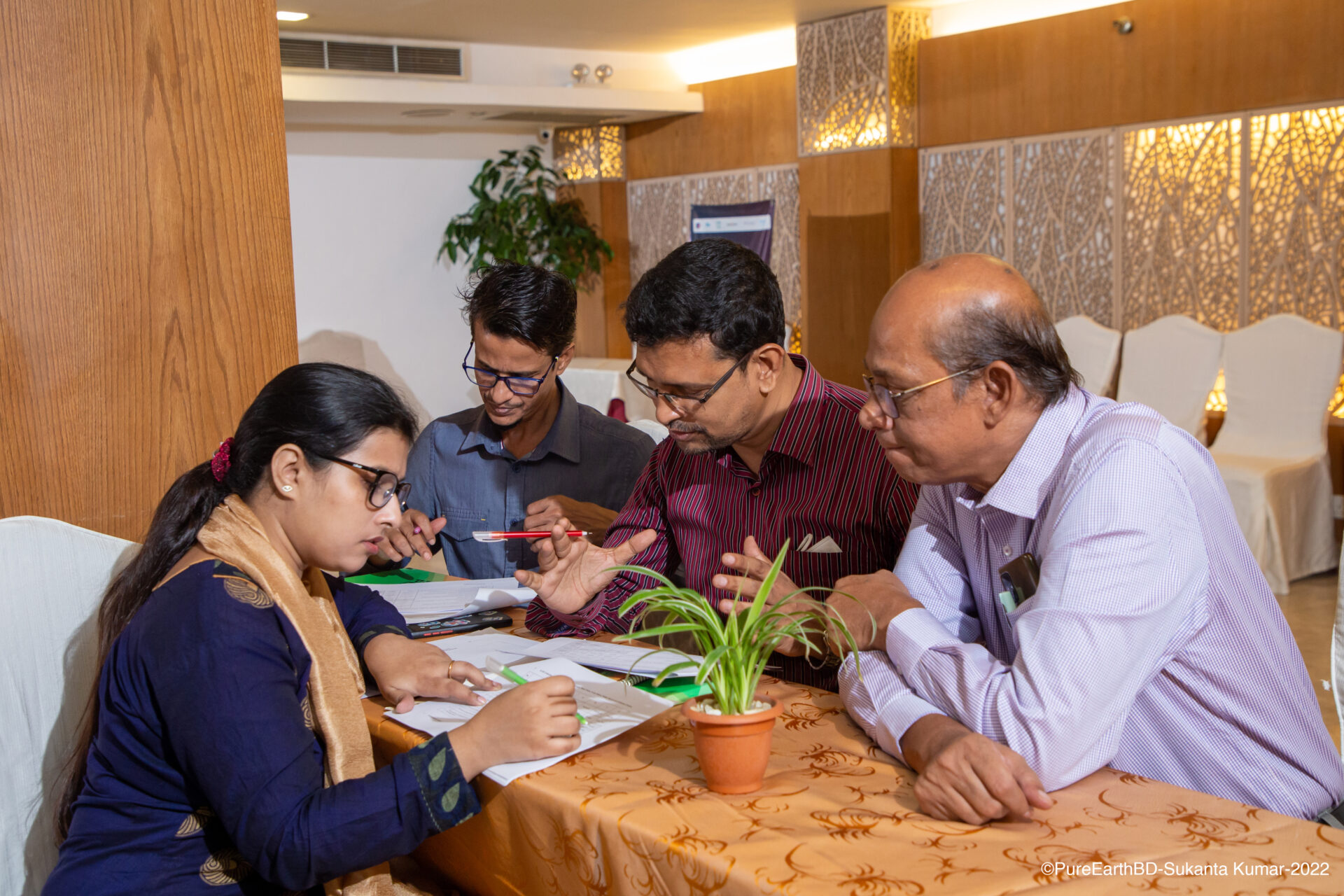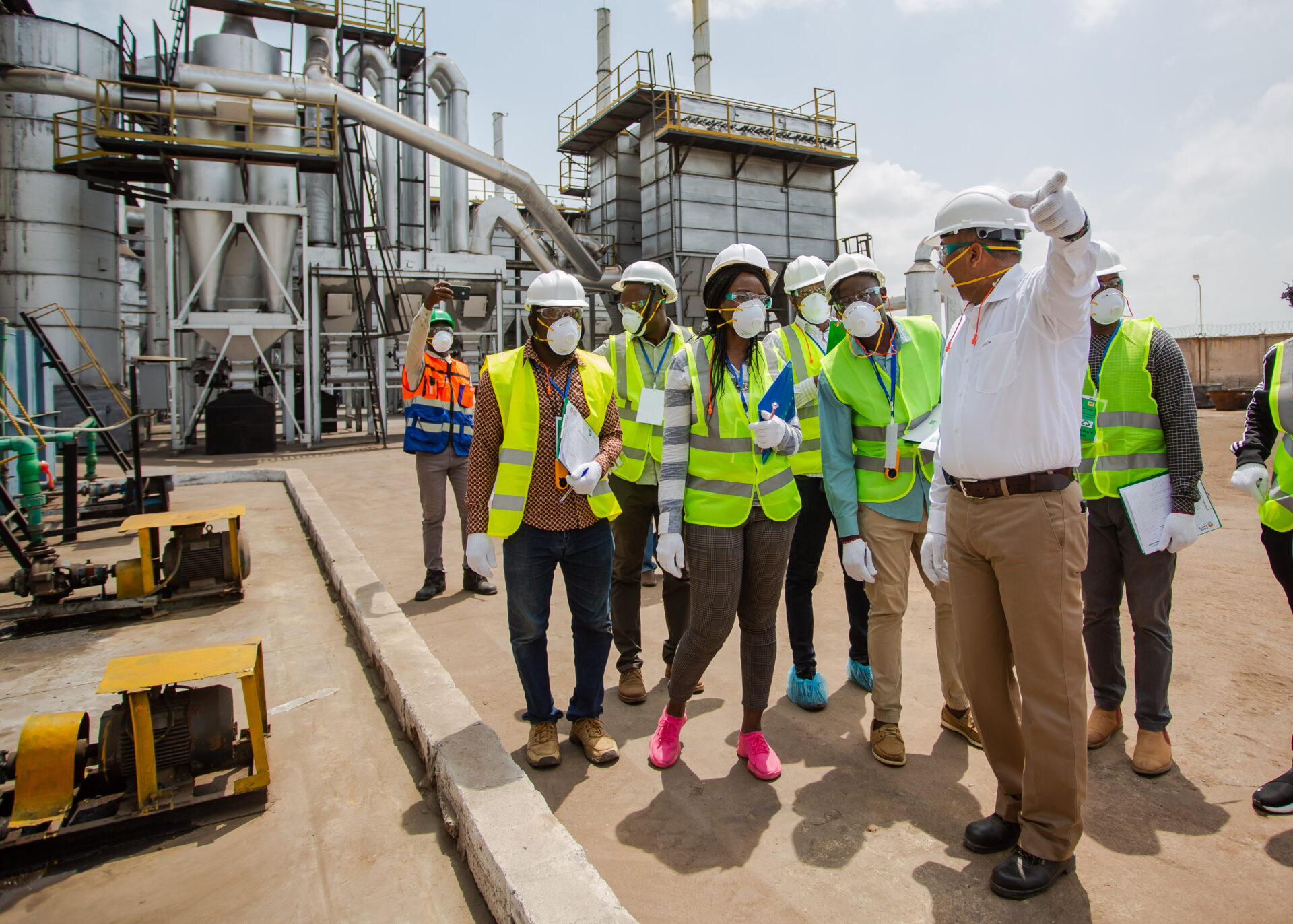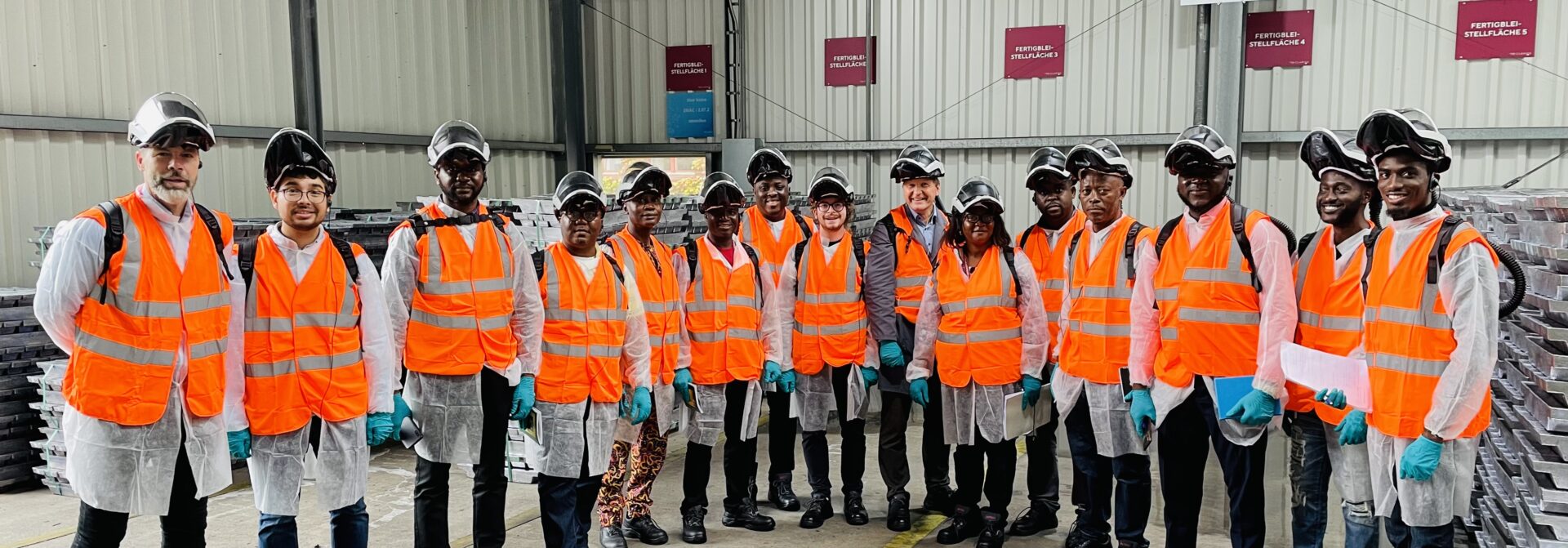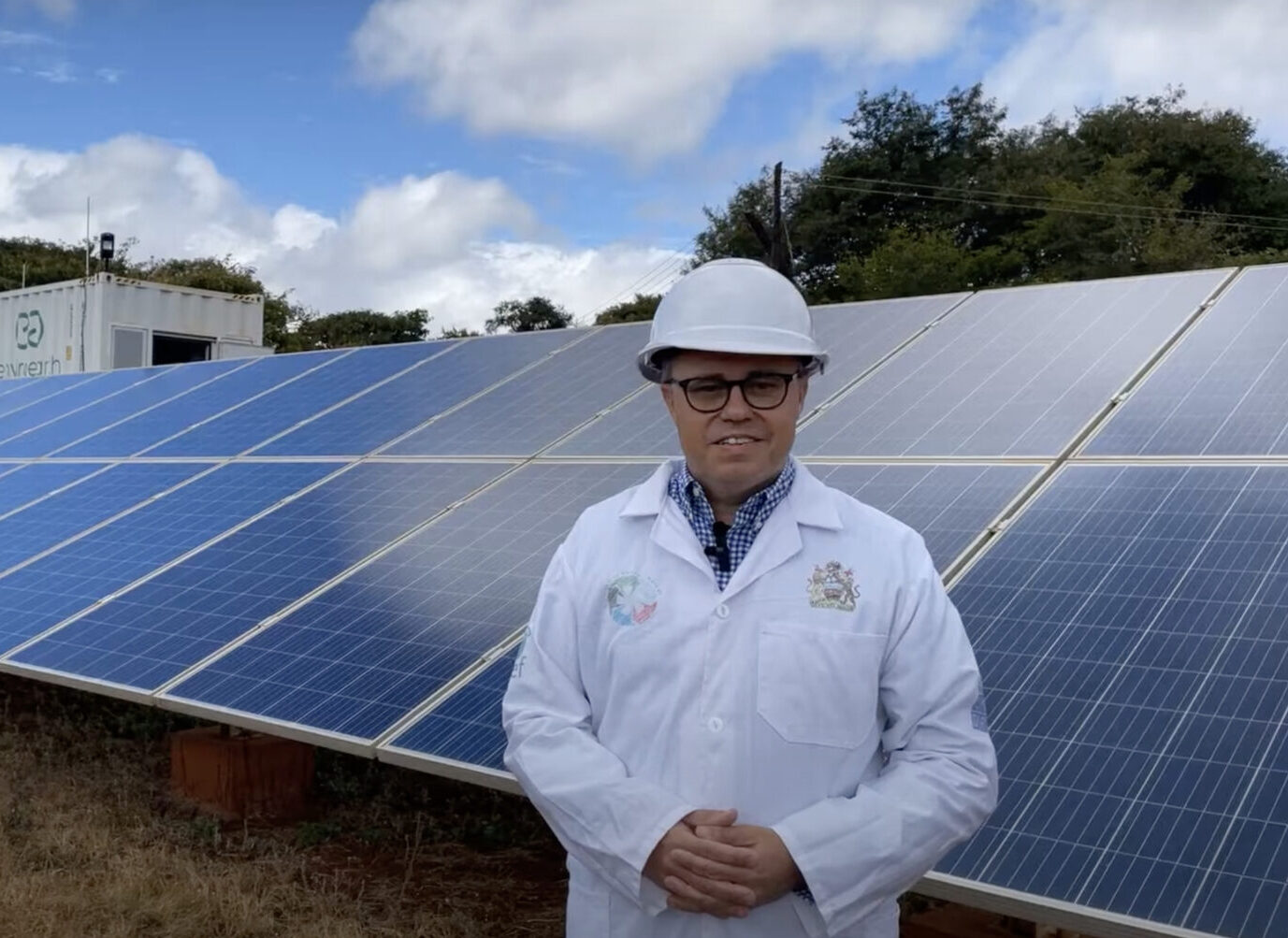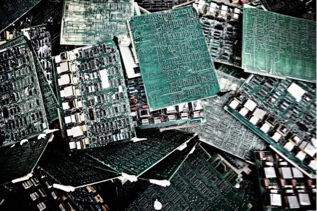Delegates at the Bangladesh workshop learn more about safe lead battery recycling.
Continue readingIndustry associations reaffirm commitment to help tackle informal lead battery recycling
Four associations representing the lead and lead battery industries have launched a program designed to help reduce substandard and informal lead battery recycling in low-and-middle income countries (LMICs).
The program – known as LeadBattery360° – builds on guiding principles agreed among the associations in 2020.
Supported by the International Lead Assocation, Battery Council International, EUROBAT and the Association of Battery Recyclers, the initiative aims to promote and recognise best practice in the responsible management of lead throughout lead battery value chain – from mining through to battery manufacturing and recycling.
To support this program, a new website, www.leadbattery360.org, highlights a range of initiatives supported by the industry to reduce informal recycling in countries ranging from Ghana to Bangladesh and from the Philippines to Costa Rica.
In the United States and in Europe lead batteries operate in a closed loop – where battery raw materials are recycled at end-of-life and used to manufacture new batteries – with up to 99% of spent lead batteries being collected and recycled. However, in some LMICs, improper and unregulated battery recycling of lead batteries can cause serious health risks for employees and nearby communities.
Dr Steve Binks, of ILA, the program director, said: “We all want to see an end to informal and substandard battery recycling and manufacturing where it exists, and this initiative aims to help countries where this is a problem improve through practical support and sharing best practice.
“Our guiding principles set the bar for the entire lead and lead battery value chain, ensuring that companies who are members of the four associations supporting the program continue to meet the already very high standards in place to protect people and the environment.
“As worldwide demand for rechargeable batteries continues to grow, we are committed to promoting ethically sound battery recycling and manufacturing through our LeadBattery360° initiative.”
The guiding principles established by the associations include commitments to:
· Support responsible battery manufacturing and recycling by placing environmental health and safety excellence at the heart of our operations.
· Promote the sound management of lead exposure and emissions by setting continuous improvement targets and sharing best practices
· Adopt responsible sourcing policies for lead containing materials, seek to identify risks in the supply chain, and use our influence to promote best practices for EHS performance in suppliers’ operations.
· Minimise the environmental impact of our products by encouraging the development of programs that ensure effective collection, transportation and environmentally sound recycling of used lead batteries.
· Adopt business practices that consider the communities impacted by our operations, respect the human and labour rights of our employees and work against corruption in all its forms.
· Proactively engage key stakeholders in an open and transparent manner.
· Partner with key stakeholders and government agencies to share our expertise and promote environmentally sound recycling of lead batteries in low and medium-income countries.
LeadBattery360° members are part of the technical working group that is currently updating the Basel Technical Guidelines for the Environmentally Sound Recycling of Used Lead Acid Batteries. They also provided the technical input into standard operating procedures for responsible lead battery recycling that are currently being incorporated into regulatory standards in Ghana and evaluated in other countries.
Nigerian delegation briefed on LeadBattery360
A delegation of Nigerian businesses and government officials visited Germany in September to find out more about the country’s lead battery recycling industry.
As part of the tour, which was organised by energy consultancy MicroEnergy International, the group (pictured) visited battery recycling processes at Clarios Recycling GmbH in Krautscheid and were given a tour by the managing director of Clarios Recycling GmbH, Frank Toubartz.
The delegation’s itinerary also included a briefing on the LeadBattery360 programme by ILA’s Director of Regulatory Affairs, Dr Steve Binks, and battery recycling consultant Brian Wilson, including a question and answer sessions on best practice recycling standards.
Lead batteries to provide energy storage for East Africa hospital project
Proposals to deploy lead battery technology as part of two projects to provide innovative energy storage systems for an African nation have been drawn up by partners including the Consortium for Battery Innovation.
CBI has teamed up with UK-based Loughborough University and partners organizations to submit a funding bid to a UK government agency for just over £1.3 million ($1.5 million) to develop a novel hydrogen-production energy storage system that uses lead battery components (battolyser) in the East African nation of Malawi,
The Modular Energy Storage with Clean Hydrogen (MESCH) project will, if the funding application is successful, develop a first unit to support operations at a hospital in Malawi.
The system will provide essential backup power and also turn excess solar power into hydrogen for cooking.
CBI research and innovation manager Carl Telford, who visited Malawi for talks about the projects earlier this month, said CBI member companies would provide the lead battery technology for MESCH.
Carl Telford (pictured above) told LB360: “The role of battery energy storage in low and middle-income economies is becoming increasingly important, because reliable power supplies support health, education, cooking, business and agriculture.
“The proposed projects are also an example of how investments in the further deployment of sustainable, advanced lead battery technology, can energize the wider African continent.”
ILA to join international review of battery recycling standards
An international environmental body which oversees the safe global management of chemicals and waste has agreed to review and update the guidelines for responsibly recycling lead batteries.
ILA’s special adviser Brian Wilson attended the 15th meeting of the Conference of the Parties of the Basel Convention in Geneva which discussed the need to update the existing technical guidelines for the safe and environmentally sound recycling of used lead batteries..
The Basel, Rotterdam and Stockholm conventions are multilateral environmental agreements for the sound management of wastes.
At the COP, which was attended by more than 1500 delegates from 200 countries, it was agreed that a special technical group will be established to review and update the guidelines.
The group will also review the need to introduce and prepare guidelines for responsibly recycling other battery technologies.
The Basel convention’s secretariat approved ILA’s request to nominate Brian Wilson to provide technical assistance to the working group.
Speaking after the meeting Brian Wilson said: “There was universal support for the request to update the technical guidance for lead battery recycling. And the technical contact group also noted differences between batteries in terms of their management, recycling and safe disposal including the fact that technologies for disposing of, or recycling lithium-ion batteries are still emerging.”
Dr Steve Binks, ILA Regulatory Affairs Director said: “This is an important part of our ongoing commitment to safe and responsible battery recycling in low and middle-income countries. The Basel technical guidelines are the recognised standard and ILA will now contribute to updating them.”
ILA has joined the Protecting Every Child’s Potential initiative alongside UNICEF and Pure Earth, to support efforts to reduce the impact of unsafe lead battery recycling in low and middle-income countries.
EU set to pioneer sustainable batteries
Risus commodo viverra maecenas accumsa lacus vel facilis isemes ipsum dolor sit amet.
Risus commodo viverra maecenas accumsan lacus vel facilis isemes ipsum dolor sit amet.
Continue readingMetals coalition agrees joint standard meeting LME ‘responsible sourcing’ rules
Risus commodo viverra maecenas accumsa lacus vel facilis isemes ipsum dolor sit amet.
Risus commodo viverra maecenas accumsan lacus vel facilis isemes ipsum dolor sit amet.
Continue readingILA member implements software to further reduce emissions
Risus commodo viverra maecenas accumsa lacus vel facilis isemes ipsum dolor sit amet.
Risus commodo viverra maecenas accumsan lacus vel facilis isemes ipsum dolor sit amet.
Continue readingBatteries boost as US and EU focus on climate change and economic recovery
Risus commodo viverra maecenas accumsa lacus vel facilis isemes ipsum dolor sit amet.
Risus commodo viverra maecenas accumsan lacus vel facilis isemes ipsum dolor sit amet.
Continue reading